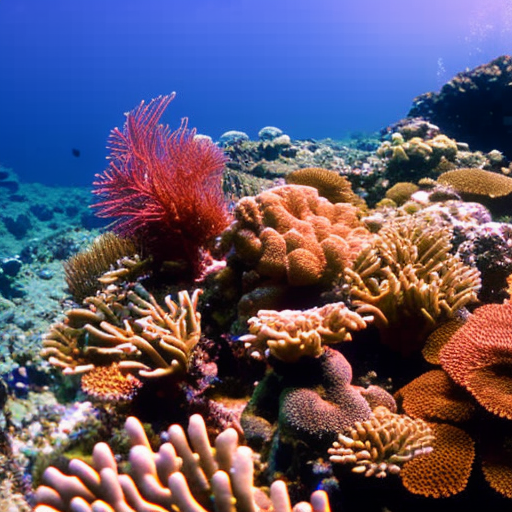Summary: Marine biodiversity refers to the variety of life found in the ocean and other marine environments. It encompasses a wide range of organisms, from microscopic bacteria to large marine mammals. Marine biodiversity is crucial for the health and functioning of marine ecosystems and provides numerous benefits to humans. However, it is facing significant threats due to human activities such as overfishing, pollution, and climate change. Conservation efforts are essential to protect and sustain marine biodiversity for future generations.
What is Marine Biodiversity?
Marine biodiversity refers to the variety of life forms found in the ocean and other marine environments. It includes a vast array of organisms, including bacteria, algae, corals, fish, marine mammals, and many others. The ocean covers about 70% of the Earth’s surface, making it the largest habitat on the planet and home to a significant portion of the Earth’s biodiversity.
The Importance of Marine Biodiversity
Marine biodiversity plays a crucial role in maintaining the health and functioning of marine ecosystems. It provides numerous ecosystem services, such as food production, nutrient cycling, climate regulation, and coastal protection. Many communities around the world rely on marine resources for their livelihoods, including fishing, tourism, and pharmaceuticals.
Threats to Marine Biodiversity
Marine biodiversity is facing numerous threats, primarily due to human activities. Overfishing is one of the most significant threats, leading to the depletion of fish stocks and disrupting marine food webs. Pollution, including plastic waste, oil spills, and chemical contaminants, also poses a severe threat to marine life. Climate change is causing rising sea temperatures, ocean acidification, and sea-level rise, which can have detrimental effects on marine ecosystems and species.
Conservation of Marine Biodiversity
Conservation efforts are essential to protect and sustain marine biodiversity. Marine protected areas (MPAs) are designated areas where human activities are restricted or prohibited to conserve marine ecosystems and species. MPAs can help preserve biodiversity, restore degraded habitats, and support the recovery of threatened species. Sustainable fishing practices, such as implementing catch limits and reducing bycatch, are crucial for maintaining fish populations and protecting marine biodiversity. Additionally, reducing pollution and addressing climate change are essential for the long-term conservation of marine ecosystems.
Benefits of Marine Biodiversity
Marine biodiversity provides numerous benefits to humans. It supports the fishing industry, providing a vital source of food and income for millions of people worldwide. Marine organisms also contribute to the development of new medicines and pharmaceuticals, with many drugs derived from marine sources. Furthermore, marine ecosystems play a crucial role in regulating the Earth’s climate by absorbing carbon dioxide and producing oxygen.
The Future of Marine Biodiversity
The future of marine biodiversity depends on our ability to address the threats it faces. It requires a global effort to reduce overfishing, pollution, and greenhouse gas emissions. International agreements and collaborations are necessary to protect marine ecosystems and establish effective conservation measures. Public awareness and education are also crucial in promoting sustainable practices and fostering a sense of responsibility towards marine biodiversity.
In conclusion, marine biodiversity is a vital component of our planet’s ecosystems, providing numerous benefits to humans and supporting the health of marine environments. However, it is under significant threat from human activities such as overfishing, pollution, and climate change. Conservation efforts, including the establishment of marine protected areas, sustainable fishing practices, and reducing pollution and greenhouse gas emissions, are essential for the long-term preservation of marine biodiversity. It is crucial that we take action now to protect and sustain marine biodiversity for future generations.












